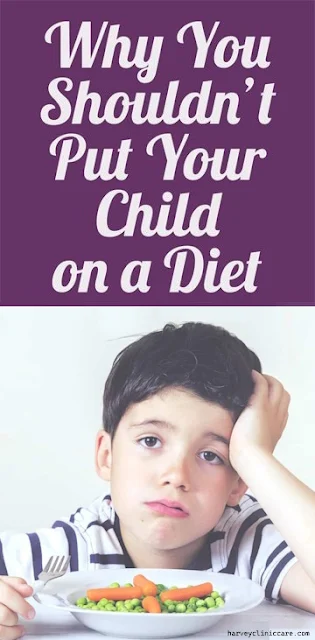Given that we are more conscious of the way we look than ever before, many people today have already tried one or more diets. Although the word "diet" generally refers to the food we eat, it can also mean cutting back on calories.
And it's not just adults who struggle with their weight and want to diet; there are also children who are quite self-conscious about their appearance. Given that their baby fat is still present, you may be wondering if your children should already be on a diet. However, not all children should be required to.
Why Kids Shouldn’t Go on a Diet
Going on a diet entails limiting your caloric intake so that the body can burn extra fat as fuel, which may result in weight loss. Children don't need to reduce their food intake because they are still growing and developing, whereas adults should. They will require different kinds of nourishing food at this stage in order to be able to grow as they should.
But what about children who are overweight? Although some parents may believe that putting them on a restrictive diet is going to be good for them, teaching them how to eat healthy has better and long-term effects. It’s true that being overweight poses a health risk to children, but kids can get hurt even more when they are put into a restrictive diet where they miss out on important nutrients.
The Dangers of Diets
The problem with putting your kids on a diet is that you may be following a fad diet which can prevent them from learning how to follow a healthier lifestyle. Fat diets may help them lose weight at one point, but they won’t be sustainable in the long run. What happens is that, once the diet is finished, your child may simply go back to his or her old eating habits which can lead to more weight gain.
What’s more, there are fad diets that require your child to remove certain food groups to their daily meal which can pose a problem to their overall health especially in their developmental stage because it means that they will be missing out on crucial nutrients. Regardless of whether the diet calls for a smoothie, or just limiting food intake to soups, diets are never good for kids to begin with.
What Your Kids Can Do
If your child is not going on a diet to lose weight, how can they manage? Well, this is where teaching them healthy eating habits will come in. Here’s what they should have in their meals:
- Whole grain foods
- Fruits and vegetables
- Meat, nuts, and other foods that are high in protein content
- Dairy as well as milk products
These foods are packed with the right nutrients that are essential for your child’s growth just like in the case of protein, which is necessary for building muscles, while calcium is critical for growing bones. Even fiber plays a role in keeping bowels moving which is necessary to flush out any toxins that have accumulated over time.
If you are worried that your child will not be too keen on following this kind of diet, you might want to try rewarding them. Try active play as a reward for their behavior rather than bribing them with sweets as the latter can develop an unhealthy food association. Another way to encourage your child to eat their vegetables is to eat them too during mealtimes as part of a positive reinforcement.
